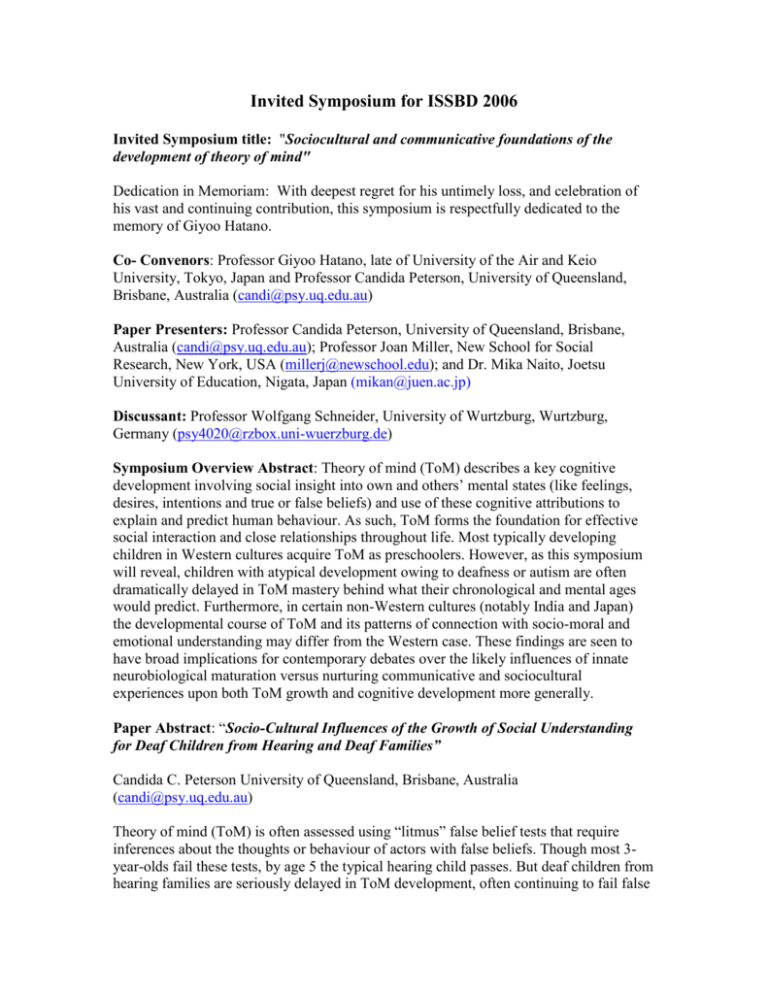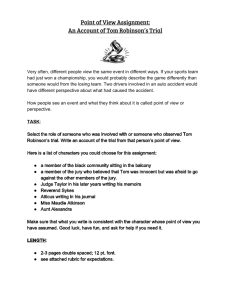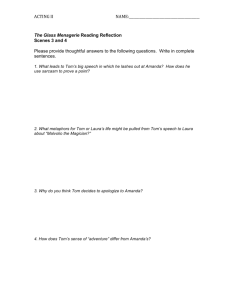Theory of mind (ToM) involves the social insight into the human
advertisement

Invited Symposium for ISSBD 2006 Invited Symposium title: "Sociocultural and communicative foundations of the development of theory of mind" Dedication in Memoriam: With deepest regret for his untimely loss, and celebration of his vast and continuing contribution, this symposium is respectfully dedicated to the memory of Giyoo Hatano. Co- Convenors: Professor Giyoo Hatano, late of University of the Air and Keio University, Tokyo, Japan and Professor Candida Peterson, University of Queensland, Brisbane, Australia (candi@psy.uq.edu.au) Paper Presenters: Professor Candida Peterson, University of Queensland, Brisbane, Australia (candi@psy.uq.edu.au); Professor Joan Miller, New School for Social Research, New York, USA (millerj@newschool.edu); and Dr. Mika Naito, Joetsu University of Education, Nigata, Japan (mikan@juen.ac.jp) Discussant: Professor Wolfgang Schneider, University of Wurtzburg, Wurtzburg, Germany (psy4020@rzbox.uni-wuerzburg.de) Symposium Overview Abstract: Theory of mind (ToM) describes a key cognitive development involving social insight into own and others’ mental states (like feelings, desires, intentions and true or false beliefs) and use of these cognitive attributions to explain and predict human behaviour. As such, ToM forms the foundation for effective social interaction and close relationships throughout life. Most typically developing children in Western cultures acquire ToM as preschoolers. However, as this symposium will reveal, children with atypical development owing to deafness or autism are often dramatically delayed in ToM mastery behind what their chronological and mental ages would predict. Furthermore, in certain non-Western cultures (notably India and Japan) the developmental course of ToM and its patterns of connection with socio-moral and emotional understanding may differ from the Western case. These findings are seen to have broad implications for contemporary debates over the likely influences of innate neurobiological maturation versus nurturing communicative and sociocultural experiences upon both ToM growth and cognitive development more generally. Paper Abstract: “Socio-Cultural Influences of the Growth of Social Understanding for Deaf Children from Hearing and Deaf Families” Candida C. Peterson University of Queensland, Brisbane, Australia (candi@psy.uq.edu.au) Theory of mind (ToM) is often assessed using “litmus” false belief tests that require inferences about the thoughts or behaviour of actors with false beliefs. Though most 3year-olds fail these tests, by age 5 the typical hearing child passes. But deaf children from hearing families are seriously delayed in ToM development, often continuing to fail false belief during middle childhood and the teens (Peterson, 2004; Peterson & Siegal, 2000) just like their peers with autism. The fact that deaf children with deaf parents (native signers) develop ToM on the hearing child’s early timetable (e.g., Peterson, Wellman & Liu, 2005) highlights the likely relevance of socio-cultural and communicative factors to ToM growth. Building on these earlier findings, the present paper seeks further understanding of how communication patterns and conversational opportunities interact with the cultural worlds of peers and schooling to shape the growth of mentalistic understanding in deaf children. I will first present new 2-year longitudinal data on the false belief understanding of 18 late-signing deaf children aged 6 to 12. Next I will examine cross-sectional links between false belief scores and teachers’ ratings of these same children’s social and emotional maturity and peer interaction. Similar links between social interaction and ToM will also be examined in group of 8 deaf native signers of similar age. Implications of these findings for socio-cultural, conversational and neurobiological-maturation theories of ToM development in typical and atypical groups of children will be considered. Paper Abstract: “The Complexity of Deontic Knowledge: Enculturation in Developmental Change” Joan Miller, New School for Social Research, New York, USA (millerj@newschool.edu) Arguments have been made for the interdependence of deontic considerations, involving conceptions of obligation and permission, and mentalistic considerations, involving conceptions of beliefs and desires, in theory of mind understandings (Wellman & Miller, 2005). Building on this insight, the present paper presents data on culturally variable developmental changes that occur in the interrelationship of deontic and mentalistic knowledge. A series of studies are described in which respondents are asked to evaluate hypothetical situations that involve helping a family member either in the presence or absence of explicit social expectations. The respondents include middle class European American and middle class Hindu Indian participants in each of the following age groups (age 6, age 9, adult). Within both cultural groups, choice is shown to become increasingly important with age. However, whereas among European-Americans, duty tends to be viewed as antithetical to choice and agency, among Hindu-Indians, duty tends to be viewed as freely given yet also as expressive of agency. Studies are also discussed which compare perceptions of the norm of reciprocity among both adult and child samples. This work documents that US respondents are more prone to emphasis balanced reciprocity and Indian respondents to emphasize generalized reciprocity, with these patterns of response having differential implications in terms of mentalistic inferences. Conclusions are drawn regarding the need to view developmental change as involving the acquisition of discretionary interpretations of experience that are culturally variable, rather than as following a universal cognitively based progression that directly mirrors unmediated experience. Paper Abstract: “A Long Way towards Integrated Social Cognition: Japanese Children’s Understanding of Second-order False Beliefs and Complex Emotions” Mika Naito, Joetsu University of Education, Nigata, Japan (mikan@juen.ac.jp) Children’s social cognition has been extensively studied under the now wellknown title “theory of mind” (ToM). Yet, the scope of research has been limited. ToM has been largely equated with early childhood development of an understanding firstorder false beliefs by children in the Western world. However, preschool children’s understanding of beliefs and knowledge is not an end point but just a start of more integrated social cognition of various kinds (Flavell, 2000). Furthermore, ToM does not necessarily follow a universal developmental trajectory in all cultures (Naito & Koyama, in press). The present paper illustrates how higher-order theory of mind and complex emotional understanding are integrated beyond preschool years in Japanese children. First, 4- to 8-year-olds received second-order false belief tasks (Sullivan, Zaitchik, & Tager-Flusberg, 1994) and tasks of emotional display rules involving self-presentational and prosocial motivations. A second study tested 7- to 11-year-olds on a simplified second-order task and tasks of faux pas emotion. In contrast to Western children, Japanese children did not understand second-order false beliefs until 8 years using Sullivan et al.’s tasks, and not until age 11 using the conceptually simpler Study 2 task. The emotion tasks were not passed until similar ages (display rules at 8 and faux pas at 11). Furthermore, only at these comparatively advanced ages was each of the emotional comprehension tasks clearly associated with second-order false belief understanding of different tasks. Sociocultural implications of theory of mind development that rests on the cues embedded in tasks children can use are discussed, along with a model of the gradual integration of cognitive and emotional understanding that arises synchronously but independently.







